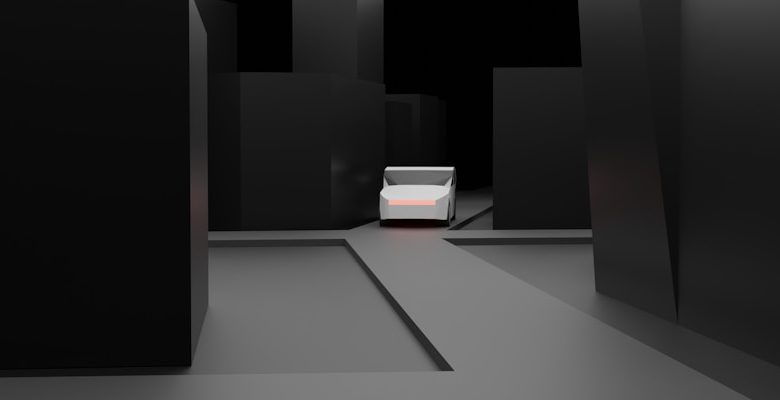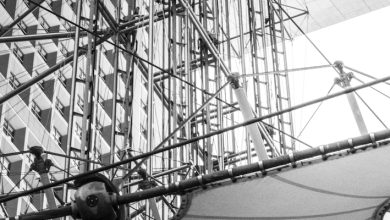The Rise of Decentralized Autonomous Organizations (DAOs)

- The evolution of DAOs in the digital age
- How DAOs are revolutionizing traditional organizations
- The potential impact of DAOs on the future of governance
- A closer look at the key features of decentralized autonomous organizations
- The challenges and opportunities faced by DAOs in today’s market
- Exploring the role of blockchain technology in the rise of DAOs
The evolution of DAOs in the digital age
Decentralized Autonomous Organizations (DAOs) have undergone significant evolution in the digital age, transforming the way we perceive traditional organizational structures. DAOs leverage blockchain technology to create transparent, decentralized systems that operate without the need for central authority. This evolution has paved the way for increased efficiency, trust, and security in various sectors.
One of the key factors driving the evolution of DAOs is the shift towards community governance. Unlike traditional organizations where decision-making is centralized, DAOs empower individuals to participate in the decision-making process through voting mechanisms. This inclusive approach fosters a sense of ownership and accountability among members, ultimately leading to more democratic and resilient organizations.
Moreover, the evolution of DAOs has also seen an emphasis on smart contracts. These self-executing contracts are coded to automatically enforce the terms of an agreement when predefined conditions are met. By leveraging smart contracts, DAOs can execute transactions, manage funds, and distribute rewards without the need for intermediaries, enhancing transparency and reducing the risk of fraud.
Another significant development in the evolution of DAOs is the focus on interoperability. As the blockchain ecosystem continues to expand, DAOs are exploring ways to collaborate and interact with other decentralized applications (dApps) and platforms. This interoperability not only enhances the scalability of DAOs but also opens up new opportunities for innovation and growth in the digital economy.
In conclusion, the evolution of DAOs in the digital age has revolutionized the way organizations operate, shifting towards decentralized, community-driven models that prioritize transparency, efficiency, and collaboration. As DAOs continue to evolve and adapt to the changing landscape of technology, they are poised to play a significant role in shaping the future of decentralized governance and organizational structures.
How DAOs are revolutionizing traditional organizations
Decentralized Autonomous Organizations (DAOs) are transforming traditional organizational structures by leveraging blockchain technology to create transparent, efficient, and democratic systems. DAOs operate without the need for central management, instead relying on smart contracts to automate decision-making processes.
One of the key ways in which DAOs are revolutionizing traditional organizations is through their ability to eliminate intermediaries and streamline operations. By cutting out middlemen, DAOs can reduce costs, increase speed, and enhance trust among participants. This decentralized approach empowers individuals to participate directly in decision-making processes, leading to a more inclusive and democratic organizational model.
Furthermore, DAOs are enabling new forms of collaboration and innovation by allowing individuals from around the world to come together and work towards a common goal. This borderless nature of DAOs opens up opportunities for diverse perspectives and expertise to contribute to projects in ways that were previously not possible within traditional hierarchical organizations.
The potential impact of DAOs on the future of governance
Decentralized Autonomous Organizations (DAOs) have the potential to revolutionize the future of governance by introducing a new paradigm of decision-making and resource allocation. These organizations operate on blockchain technology, allowing for transparent, secure, and efficient management without the need for traditional intermediaries.
One of the key advantages of DAOs is their ability to enable global participation in decision-making processes. Through decentralized voting mechanisms, stakeholders from around the world can have a say in the direction of the organization, leading to more inclusive and democratic governance structures. This could potentially increase trust in institutions and enhance legitimacy in the eyes of the public.
Furthermore, DAOs have the potential to streamline governance processes, reducing bureaucracy and increasing the speed of decision-making. Smart contracts embedded in DAOs can automatically execute predefined actions based on agreed-upon rules, eliminating the need for manual intervention and reducing the risk of human error or corruption.
However, it is important to recognize the challenges and risks associated with DAOs. Security vulnerabilities, regulatory uncertainty, and governance disputes are some of the potential obstacles that must be addressed to ensure the long-term success of these organizations. Despite these challenges, the potential impact of DAOs on the future of governance is undeniable, and their continued development and adoption could lead to a more transparent, efficient, and participatory model of governance for years to come.
A closer look at the key features of decentralized autonomous organizations
Decentralized Autonomous Organizations (DAOs) are innovative entities that operate on blockchain technology, governed by smart contracts and controlled by their members. Let’s take a closer look at some key features that set DAOs apart from traditional organizations:
1. **Transparency**: DAOs are known for their high level of transparency, as all transactions and decisions are recorded on the blockchain for anyone to access. This transparency helps build trust among members and external stakeholders.
2. **Autonomy**: One of the defining characteristics of DAOs is their autonomy. Once the rules are set in the smart contract, the organization can operate without the need for centralized management. This allows for more efficient decision-making processes.
3. **Token-based Governance**: DAOs often use tokens as a form of governance. Token holders have voting rights that allow them to influence the direction of the organization. This democratic approach ensures that decisions are made collectively by the community.
4. **Decentralized Decision-making**: In DAOs, decisions are made collectively by the members rather than a central authority. This decentralized decision-making process ensures that all voices are heard and that the organization’s actions reflect the will of the majority.
5. **Resilience**: DAOs are designed to be resilient and resistant to censorship or external interference. Because they are decentralized and operate on the blockchain, they are less vulnerable to single points of failure or malicious attacks.
6. **Incentive Mechanisms**: DAOs often incorporate incentive mechanisms to encourage participation and contribution from members. These mechanisms can include rewards in the form of tokens or other benefits for those who actively engage with the organization.
These key features make DAOs a unique and promising model for decentralized governance and collaboration. By leveraging blockchain technology and smart contracts, DAOs have the potential to revolutionize the way organizations are structured and operated in the digital age.
The challenges and opportunities faced by DAOs in today’s market
Decentralized Autonomous Organizations (DAOs) face a myriad of challenges and opportunities in today’s market. One of the main challenges is the lack of clear regulatory frameworks governing DAO operations. This uncertainty can deter potential participants and investors from fully embracing DAOs. However, this regulatory ambiguity also presents an opportunity for DAOs to pioneer new models of governance and self-regulation.
Another challenge is the potential for security vulnerabilities within DAOs. As these organizations operate on blockchain technology, they are susceptible to hacking and other cyber threats. This underscores the importance of robust security measures and smart contract audits to protect DAO assets and maintain trust among stakeholders.
On the flip side, DAOs offer unique opportunities for innovation and collaboration. By leveraging blockchain technology, DAOs can streamline decision-making processes, reduce bureaucracy, and increase transparency. This can lead to more efficient operations and greater trust among members of the organization.
Furthermore, DAOs have the potential to democratize access to financial resources and opportunities. Through decentralized fundraising mechanisms like initial DAO offerings (IDOs), individuals from around the world can participate in funding projects and initiatives that align with their values and interests. This can empower communities that have traditionally been excluded from traditional financial systems.
Exploring the role of blockchain technology in the rise of DAOs
Blockchain technology plays a crucial role in the rise of Decentralized Autonomous Organizations (DAOs). DAOs are organizations that operate without a central authority and are instead governed by smart contracts on the blockchain. This technology enables trustless and transparent transactions, allowing for the creation of autonomous entities that can execute functions without human intervention.
The use of blockchain in DAOs ensures that transactions are secure, immutable, and verifiable. Smart contracts, which are self-executing contracts with the terms of the agreement directly written into code, enable DAOs to automate decision-making processes and enforce rules without the need for intermediaries. This eliminates the risk of fraud and manipulation, making DAOs more efficient and trustworthy.
Furthermore, blockchain technology provides a decentralized infrastructure for DAOs to operate on. This means that no single entity has control over the network, making it resistant to censorship and ensuring the integrity of the organization. By leveraging blockchain technology, DAOs can achieve a level of autonomy and decentralization that was previously impossible, revolutionizing the way organizations are structured and governed.



